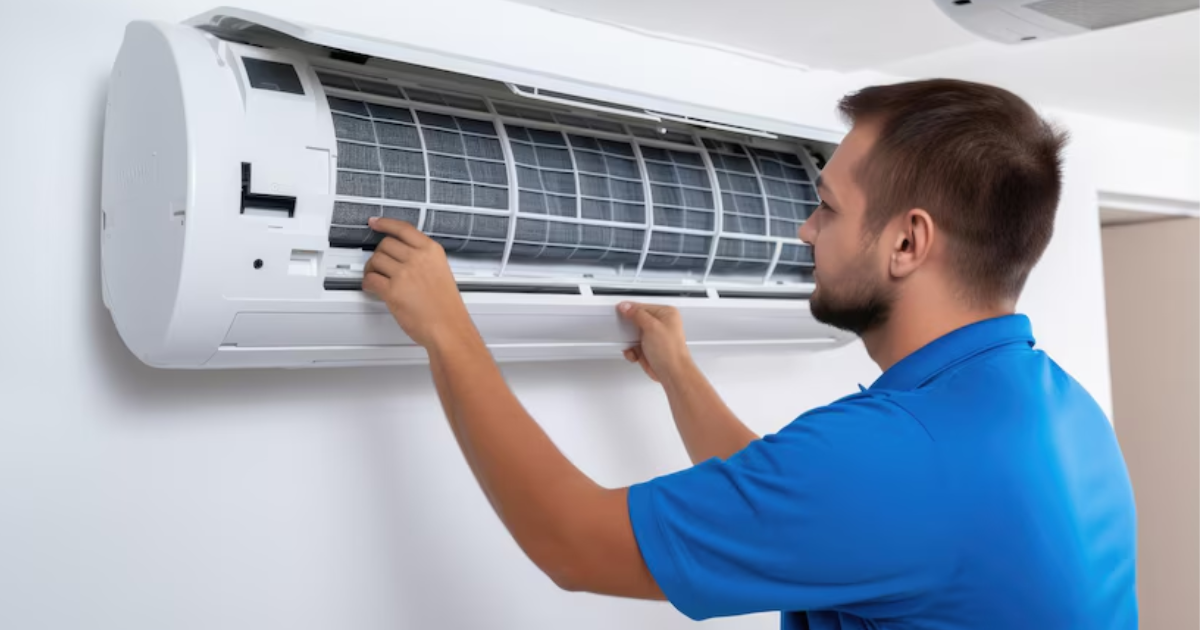Table of Contents
In the bustling metropolis of New York, where skyscrapers dominate the skyline and millions of people inhabit its buildings, ensuring good indoor air quality (IAQ) is paramount. With a climate that ranges from humid summers to chilly winters, the demand for efficient heating, ventilation, and air conditioning (HVAC) systems is constant. In this urban jungle, HVAC contractors play a pivotal role in safeguarding the health and comfort of residents by improving indoor air quality.
Understanding Indoor Air Quality:
Indoor air quality refers to the condition of the air inside buildings, including homes, offices, and public spaces. Poor IAQ can lead to various health issues, ranging from respiratory problems to headaches and fatigue. Factors contributing to poor IAQ include inadequate ventilation, pollutants from indoor and outdoor sources, and high humidity levels.
Challenges in New York:
New York City’s unique urban environment presents distinct challenges to maintaining optimal indoor air quality. High population density, traffic congestion, and industrial activities contribute to elevated levels of outdoor pollutants such as particulate matter, nitrogen dioxide, and volatile organic compounds. Additionally, the city’s aging building stock and diverse architectural styles pose challenges in ensuring proper ventilation and air circulation.
The Role of HVAC Contractors:
HVAC contractors in New York play a multifaceted role in improving indoor air quality and enhancing the overall comfort of buildings. Their expertise encompasses the design, installation, maintenance, and repair of HVAC systems tailored to the specific needs of each structure. Here’s how they contribute to better IAQ:
- System Design and Installation: HVAC contractors work closely with architects, engineers, and building owners to design and install efficient HVAC systems that meet ventilation requirements and minimize indoor pollutants. Properly sized and strategically placed equipment ensures adequate air distribution and filtration, crucial for removing contaminants.
- Air Filtration and Purification: HVAC contractors employ advanced filtration technologies to trap airborne particles, allergens, and pathogens, thereby improving IAQ. High-efficiency particulate air (HEPA) filters, UV germicidal lamps, and electrostatic precipitators are among the tools used to remove pollutants and neutralize microbial growth within HVAC systems.
- Ventilation Optimization: Adequate ventilation is essential for diluting indoor pollutants and maintaining healthy IAQ. HVAC contractors assess ventilation rates, airflow patterns, and building pressurization to optimize air exchange while minimizing energy consumption. They may recommend ventilation upgrades, such as installing energy recovery ventilators (ERVs) or demand-controlled ventilation systems, to enhance indoor air quality without compromising energy efficiency.
- Humidity Control: Controlling indoor humidity levels is crucial for preventing mold growth, dust mites, and microbial proliferation. HVAC contractors install and maintain humidity control systems, including dehumidifiers and humidifiers, to keep indoor relative humidity within the recommended range of 30% to 60%.
- Regular Maintenance and Servicing: HVAC systems require regular maintenance to ensure optimal performance and IAQ. HVAC contractors conduct routine inspections, filter replacements, and cleaning services to prevent equipment malfunction and maintain air quality standards. Timely repairs and troubleshooting minimize downtime and address issues before they escalate into costly repairs.
- Indoor Air Quality Monitoring: Advanced HVAC systems incorporate sensors and monitoring devices to continuously assess indoor air quality parameters such as temperature, humidity, carbon dioxide levels, and volatile organic compounds. HVAC contractors utilize this data to identify IAQ issues, implement corrective measures, and provide real-time feedback to building occupants.
The Impact on Health and Well-being:
By addressing indoor air quality concerns, HVAC contractors contribute to the health, comfort, and productivity of building occupants. Improved IAQ reduces the risk of respiratory illnesses, allergies, and asthma exacerbations, particularly among vulnerable populations such as children, the elderly, and individuals with preexisting medical conditions. Additionally, a comfortable indoor environment promotes better sleep quality, cognitive function, and overall well-being, enhancing the livability of residential and commercial spaces alike.
Regulatory Compliance and Sustainability:
HVAC contractors in New York adhere to stringent building codes, environmental regulations, and industry standards governing IAQ and energy efficiency. By staying abreast of regulatory requirements and adopting sustainable practices, they help buildings achieve compliance, reduce environmental impact, and qualify for incentives and certifications such as LEED (Leadership in Energy and Environmental Design).
Conclusion:
In the dynamic urban landscape of New York City, where skyscrapers rise and millions call it home, the role of HVAC contractors in improving indoor air quality cannot be overstated. Through their expertise in system design, installation, maintenance, and optimization, HVAC contractors ensure that buildings provide safe, healthy, and comfortable indoor environments for occupants to thrive. As the city continues to evolve, the partnership between HVAC professionals and building stakeholders remains essential in shaping a sustainable and resilient built environment for generations to come.
Read More On: TechNewzArt

